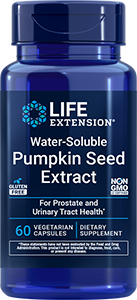
Newsletter
Newsletter
Pycnogenol® Pine Bark Extract Associated with Less Jet Lag

An extract of French maritime pine bark known as Pycnogenol® helped reduce jet lag symptoms, including temporary cognitive impairment, in a study that included pilots, flight attendants, airline staff, frequent flyers, and individuals with hypertension.1
The term "jet lag" describes the symptoms that occur following long flights that cross at least two time zones and are generally more pronounced after flights that travel from west to east. These symptoms may include:
- Fatigue, insomnia and irregular sleep patterns
- Loss of appetite, nausea and upset stomach
- Headaches and sinus irritation
- Dehydration
- Disorientation, irritability, irrational behavior
- Impaired cognitive performance
In this study, after flying 10-12 hours west to east, participants who took Pycnogenol® had fewer or less severe symptoms and fewer nights of altered sleep compared with those who did not receive it. Additionally, ankle circumference increased to a lesser extent among those who received Pycnogenol®, indicating less fluid retention. The dosage among the 65 participants in the test group was 50 milligrams every eight hours for seven days, beginning 48 hours prior to flying.
Although cognitive function was negatively impacted among most participants, those who used Pycnogenol® had higher average post-flight cognitive function scores than the control group.
The authors concluded that "Pycnogenol® was effective in preventing jet lag-related symptoms and preserving cognitive functions without tolerability problems."
Products
Apply What You’ve Learned: Jet Lag
- The American Academy of Sleep Medicine defines jet lag as a complaint of insomnia or excessive daytime sleepiness that occurs within one or two days of travel across two or more time zones, and may include impairment of daytime function, malaise or symptoms such as gastrointestinal problems, and other mental and physical symptoms.2
- Jet lag severity and incidence increases with the number of time zones crossed and gradually resolves during a four to six-day period.3
- Melatonin, a hormone predominantly produced by the brain’s pineal gland, can be used to encourage sleep when traveling to different time zones. Melatonin taken before bedtime causes phase shifts in the body’s circadian clock so that sleep is likelier to occur at a desired time.4
- Jet lag is associated with circadian rhythm disruptions. The flavonoid nobiletin, which occurs in citrus peel, may support healthy circadian rhythms.5,6
References
- Belcaro G et al. Minerva Med. 2024 Jan 10.
- Morgenthaler TI et al. Sleep. 2007;30(11)1445-59.
- Herxheimer A. BMJ Clin Evid. 2014 Apr 29;2014:2303.
- Simmons E et al. Curr Sports Med Rep. 2015 Mar-Apr;14(2):123-8.
- He B et al. Cell Metab. 2016 Apr 12;23(4):610-21.
- Shinozaki A et al. PLoS One. 2017 Feb 2;12(2):e0170904.
Featured Life Extension Magazine® Article
Reconnect Your Brain Cells
By Michael Downey
Magnesium is an essential mineral needed for the function of hundreds of the body’s enzymes. It plays an important role in the brain by protecting connections between neurons (a type of nervous system cell) and increasing their number.
Researchers at MIT developed Magnesium L-threonate which is a highly absorbable form of magnesium. In a clinical trial, adults with cognitive impairment who received magnesium L-threonate experienced significant improvement in overall cognitive ability compared with a placebo.
Read Full Article
What's Hot
Health Concern
Pycnogenol®/Centellicum® Combo Retards Atherosclerotic Plaque Progression
February 24 2023. The September 2023 issue of Panminerva Medica reported findings from a study that revealed a reduction in the progression of intra-arterial plaque among people with atherosclerosis who consumed Pycnogenol® pine bark extract and Centellicum® gotu kola extract.
Related Life Extension Magazine® Articles

Reduce the Risk of Sitting Too Long
Americans spend half their time sitting, a major risk for deep vein thrombosis and blood clots. Clinical data show that two plant extracts may reduce leg swelling and prevent venous clots.

50 Years of Consistent Findings
Pine bark extract provides a concentrated mixture of procyanidins that have been shown to reduce risk of a host of vascular and inflammatory related conditions. New applications are being reported in the medical literature each year.
Life Extension Magazine® Issue Now Online
A remarkable number of healthy-longevity findings have been published over the past 18 months.





